Krzysztof Polonek of the Berlin Piano Trio has won the vacant concertmaster’s seat at the Berlin Phil.
He is already a member of the orchestra.

From his official Berlin Phil c.v.: Krzysztof Polonek studied first at Berlin’s Universität der Künste with Tomasz Tomaszewski, later with Thomas Brandis at the Lübeck Musikhochschule, where he completed his studies with a concert exam. Additionally he gave a graduate concert in the chamber music department of the Hanover Musikhochschule and received grants from the Seymour Obermer Foundation in Switzerland, the Ferenc Fricsay Society in Berlin and the Villa Musica of the German state of Rhineland-Palatinate. He began his orchestral career in 2001 as 2nd Konzertmeister of the Deutsche Oper in Berlin. Engagements followed in leading positions at the Dresden Philharmonic and Berlin’s Rundfunk-Sinfonieorchester before he became a member of the Berliner Philharmoniker.
UPDATE: This just in from the Berlin Phil –
We congratulate Krzysztof Polonek who won the audition for the position of concertmaster on 14 February. He succeeds Andreas Buschatz, who left the Berliner Philharmoniker in 2017. The Krakow-born violinist, who has been a member of the first violin section since 2009, comes from a family of musicians. His father, the violist Zdzisław Polonek, was also a member of the Berliner Philharmoniker. Krzysztof Polonek, who studied under Tomasz Tomaszewski at Berlin University of the Arts, under Thomas Brandis at the University of Music Lübeck and under Markus Becker at the University of Music, Drama und Media Hanover, began his orchestral career in 2001 as second concertmaster with Deutsche Oper Berlin.
** MEDIA STATEMENT **
The Chicago Symphony Orchestra Association (CSOA) and the musicians of the Chicago Symphony Orchestra (CSO), represented by the Chicago Federation of Musicians (CFM), have a long-standing working relationship. As in any negotiation, both parties are working diligently to come to a mutually beneficial agreement. The contract between the CSOA and the CFM, which was set to expire on September 16, 2018, was extended by mutual agreement to 11:59 p.m. on March 10, 2019. The Association and Union have used the extension period to explore and discuss an alternative structure for comparable musician retirement benefits, and these conversations are continuing.
We highly value and respect the musicians of the CSO, who are among the finest in the world and have been a cultural treasure for the Chicago community for more than 128 years.
The CSOA is committed to reaching consensus on an agreement that would allow the organization to remain financially sustainable long into the future, while also generously supporting the musicians and their future.
The current contract allows for a substantial compensation package, including a comprehensive health care package and retirement benefits, as well as significant allowances for paid time off.
Consistent with the quality of their musicianship, the CSO musicians enjoy a contract that is among the best in the country. CSO musicians receive:
o The highest base salary of all U.S. orchestras other than the two major West
Coast orchestras, whose musicians are paid additional compensation for living in the cities of San Francisco and Los Angeles, where the cost of living is much higher. (As of the 2017/18 contract year, the CSO musicians’ minimum salary was $159,016 with an average salary of more than $185,000);
o The highest seniority pay of any U.S. orchestra starting with 10 years of service;
o The most guaranteed paid time off of any orchestra in the U.S. (12 weeks per
year, with additional time off each summer), and the lowest per-week rehearsal and concert service requirements;
o More available sabbatical time than any other U.S. orchestra;
o A generous medical benefits package with low co-pays, deductibles and out of
pocket maximums, and a premium contribution that covers only a small portion of the total cost of their health care.
Even though CSO musicians have one of the best contracts in the industry, the CSOA is not asking for a concessionary agreement. In spite of the fact that the CSOA has been experiencing annual operating deficits for several years, the Association has already offered an improvement in wages and working conditions, and will continue to offer a generous retirement package in our discussions.
The CSOA is committed to reaching an agreement with our musicians that is good for all involved, including the community that loves and supports the Orchestra.
We look forward to our upcoming concerts this weekend.
# # #
Musicians of the Chicago Symphony Orchestra have voted to authorise a strike on March 10 unless they have a new pay agreement by that date.
Their statement:
Chicago – (February 14, 2019) – After 11 months of bargaining for a new labor agreement, the
musicians of the Chicago Symphony Orchestra (CSO) have voted to authorize a strike on March 10 if
negotiations fail to achieve an agreement. At a mid-day press conference at Orchestra Hall, representatives of the musicians said they hoped not to strike, but would, if necessary, to protect the health of both individual musicians and the orchestra itself.
Long considered to be the nation’s finest orchestra, able to attract and retain superb musicians, over the past decade the musicians have seen their compensation and benefits stagnate, while their schedules increased and working conditions deteriorated. Over the same period, the musicians stated, competing orchestral associations in Los Angeles, San Francisco, and Boston increased their musicians’ wages and benefits relative to Chicago.
“We want a fair and competitive contract that will ensure the excellence and sustainability of one of the world’s great orchestras for years to come,” said Stephen Lester, symphony bassist and chair of the negotiating committee.
“With the CSO maintaining stable revenues, ticket sales, and donations, management’s attempt to squeeze the orchestra by ending our defined benefit pension plan, raising health care costs, and stagnating wages is both an insult to each of us and a danger to the reputation and viability of the institution itself,” says Gina DiBello, violinist.
Percussionist Cynthia Yeh adds: “Management is trying to squeeze us to pay their bond debt for a rehab of Symphony Center costing more than $100 million. We know that when people refer to the CSO they mean the musicians, our Maestro Riccardo Muti, and the music – not the building, however lovely it is. And it is this, the music and musicians, the heart of the CSO, that we are willing to strike to protect.”
“The overwhelming vote to strike was driven by management’s insistence on reducing benefits and offering inadequate compensation,” added Lester. In fact, the past year marked the Orchestra’s best year ever in ticket sales, with nearly 350,000 tickets sold, representing more than $23 million in
revenue.
After returning last week from a successful three-week tour of Asia, performances will resume this week. Negotiations with management have also resumed for a new three-year contract. The CSO
labor contract with the Chicago Federation of Musicians, which expired September 17, 2018, was
extended to March 10, 2019 in order to facilitate discussions and further explore the musicians’ retirement needs. If no agreement is reached by March 10, performances will be suspended and the
Orchestra’s 100 Chicago musicians will walk out.
Negotiation sessions are scheduled through the March 10 deadline. Though the parties remain far apart, the Chicago Symphony musicians remain ready and willing to work with management to reach
an agreement to ensure the sustainability and long-term success of one the world’s greatest
orchestras.
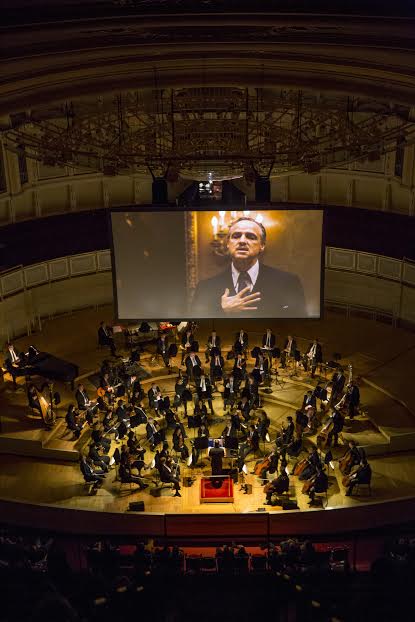
UPDATE: CSO responds
Musicians of the Chicago Symphony Orchestra have voted to authorise a strike on March 10 unless they have a new pay agreement by that date.
Their statement:
Chicago – (February 14, 2019) – After 11 months of bargaining for a new labor agreement, the
musicians of the Chicago Symphony Orchestra (CSO) have voted to authorize a strike on March 10 if
negotiations fail to achieve an agreement. At a mid-day press conference at Orchestra Hall, representatives of the musicians said they hoped not to strike, but would, if necessary, to protect the health of both individual musicians and the orchestra itself.
Long considered to be the nation’s finest orchestra, able to attract and retain superb musicians, over the past decade the musicians have seen their compensation and benefits stagnate, while their schedules increased and working conditions deteriorated. Over the same period, the musicians stated, competing orchestral associations in Los Angeles, San Francisco, and Boston increased their musicians’ wages and benefits relative to Chicago.
“We want a fair and competitive contract that will ensure the excellence and sustainability of one of the world’s great orchestras for years to come,” said Stephen Lester, symphony bassist and chair of the negotiating committee.
“With the CSO maintaining stable revenues, ticket sales, and donations, management’s attempt to squeeze the orchestra by ending our defined benefit pension plan, raising health care costs, and stagnating wages is both an insult to each of us and a danger to the reputation and viability of the institution itself,” says Gina DiBello, violinist.
Percussionist Cynthia Yeh adds: “Management is trying to squeeze us to pay their bond debt for a rehab of Symphony Center costing more than $100 million. We know that when people refer to the CSO they mean the musicians, our Maestro Riccardo Muti, and the music – not the building, however lovely it is. And it is this, the music and musicians, the heart of the CSO, that we are willing to strike to protect.”
“The overwhelming vote to strike was driven by management’s insistence on reducing benefits and offering inadequate compensation,” added Lester. In fact, the past year marked the Orchestra’s best year ever in ticket sales, with nearly 350,000 tickets sold, representing more than $23 million in
revenue.
After returning last week from a successful three-week tour of Asia, performances will resume this week. Negotiations with management have also resumed for a new three-year contract. The CSO
labor contract with the Chicago Federation of Musicians, which expired September 17, 2018, was
extended to March 10, 2019 in order to facilitate discussions and further explore the musicians’ retirement needs. If no agreement is reached by March 10, performances will be suspended and the
Orchestra’s 100 Chicago musicians will walk out.
Negotiation sessions are scheduled through the March 10 deadline. Though the parties remain far apart, the Chicago Symphony musicians remain ready and willing to work with management to reach
an agreement to ensure the sustainability and long-term success of one the world’s greatest
orchestras.

Someone blinked. Not sure which side. The lawyers win, as usual.
JOINT STATEMENT FROM THE BOSTON SYMPHONY ORCHESTRA AND ELIZABETH ROWE:
The Boston Symphony Orchestra and Elizabeth Rowe have successfully mediated the case involving Ms. Rowe’s lawsuit against the orchestra. While the details of the resolution are confidential, all those involved in the process are satisfied with the result.
The Boston Symphony continues to strive to be an industry leader in furthering the role of women at every level of the organization, including staff, management, and orchestra. Former BSO principal flutist Doriot Anthony Dwyer was a trailblazer when she joined the orchestra in 1952, the same year that the BSO became the first orchestra to implement a blind audition process. This process was designed to promote fairness and to address the issue of gender imbalance, among other issues, in orchestras throughout the country at that time.
In the same spirit of improvement and innovation it demonstrated more than six decades ago, the orchestra will continue to collaborate with musicians, staff, and other leaders in the field to accelerate the process of achieving gender parity. The BSO and Elizabeth Rowe look forward to continuing their shared commitment to artistic excellence at the highest level.
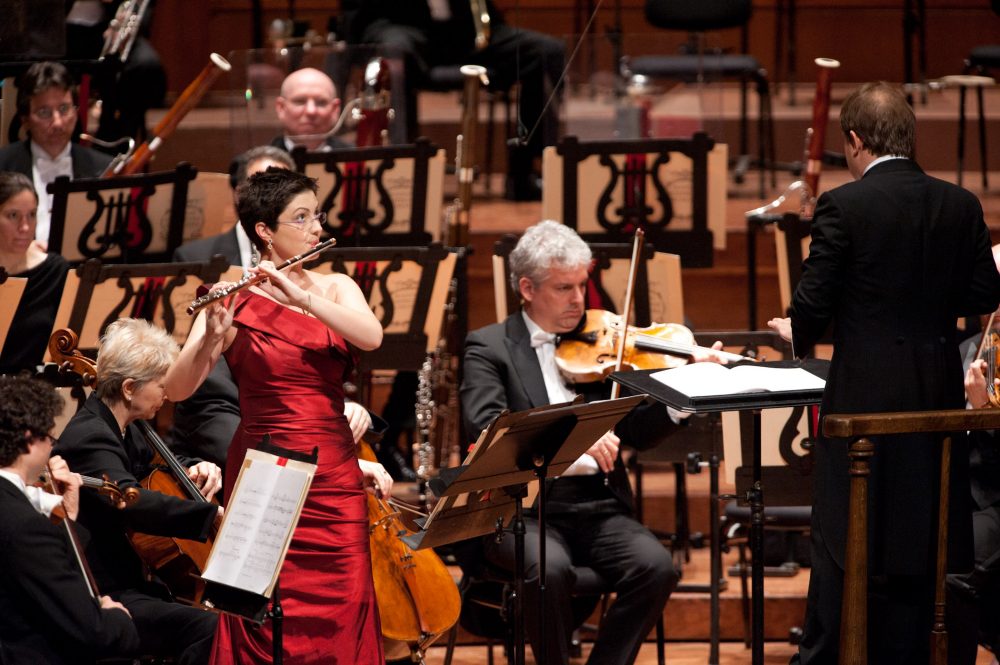
There is no more accurate or delicate way of putting this than Igor Toronyi-Lalic’s clinical description of the Dau experience in Paris in this brilliant Spectator review:
…. The only semi-intriguing thing for a music critic is that you get to see the erect cock of conductor Teodor Currentzis, who, playing the film’s central character, toys with a threesome, then gets sucked off. Now I’ve never seen Haitink’s todger or Rattle’s or Toscanini’s, so that was at least novel. One to tick off the bucket list….
Read the full review here.
And, conductors, if you must try this, please do it at home.
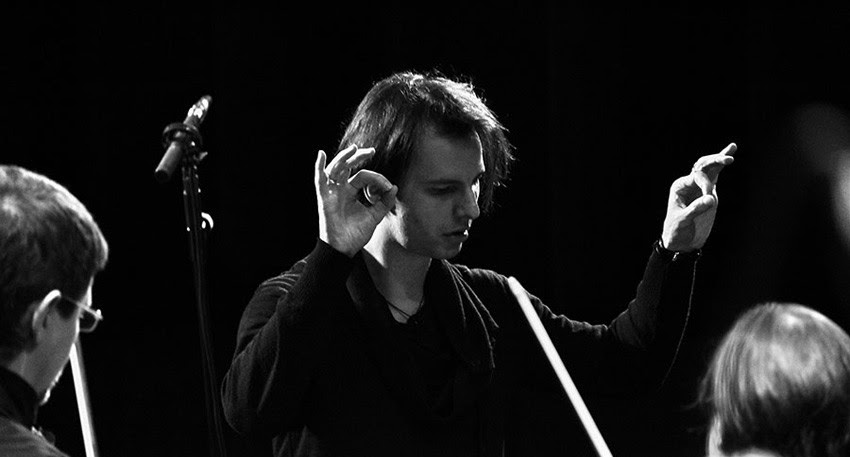
UPDATE: Dau is a series of feature films, visual art projects and live installations by the Russian director Ilya Khrzhanovsky. Other participants include the artist Marina Abramovic, opera director Peter Sellars and Peruvian shaman Guillérmo Arévalo Valera. Curentzis plays the title role.
press release:
Rome, 14 February, 2019 – After performing, world-renowned violinist and UN Messenger of Peace, Midori, called on Pope Francis and other world leaders in attendance at the United Nation’s International Fund for Agricultural Development (IFAD) annual meeting today to believe in the transformative power of women and girls in underserved remote communities.
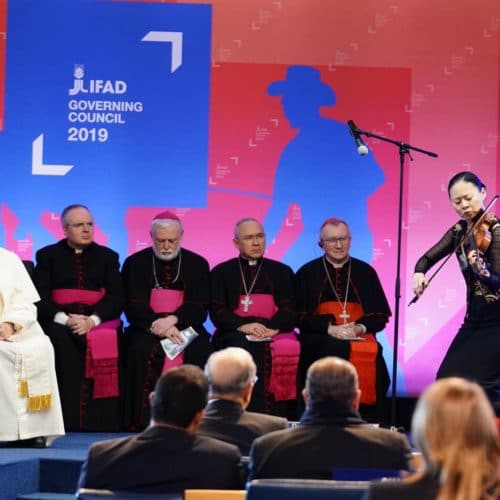
It’s the other Met, the one on Fifth Avenue.
The third and final phase of the nearly three-year project to renovate and reinterpret The Met’s André Mertens Galleries for Musical Instruments is now complete and the newest gallery will reopen to the public on February 15. The gallery includes over 250 musical instruments of various types-drums, strings, winds, keyboards, and more-dating from 200 B.C.E. to the present day, augmented by works from other Museum departments, including seven paintings, an imperial jade chime and scepter, and an Indonesian shadow puppet. The gallery also now includes an intimate concert space with a 7-by-25-foot stage and state-of-the-art recording and sound system that allows performances to be transmitted to the Museum’s main auditorium and beyond in the highest quality. Enhancing the gallery-viewing experience are two media kiosks featuring narratives on the Triangular Trade route and Silk Road (video footage available) as well as some 40 new Audio Guide stops.
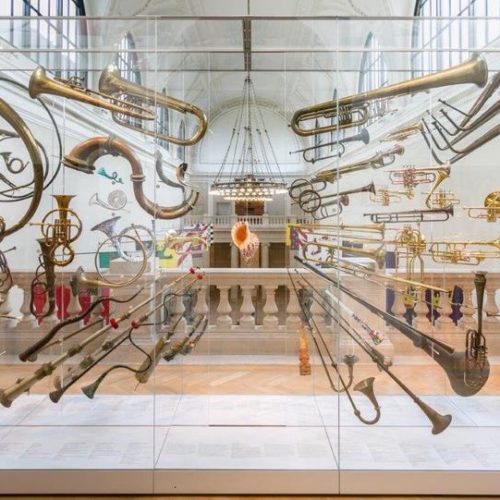
Message from the Chicago Confederation of Musicians:
WHAT: After 11 months of bargaining for a new labor agreement, the musicians of the Chicago Symphony Orchestra will announce the results of its vote taken last night and the action it will take to protect the health of the individual musicians and the orchestra at a press conference on Thursday, 12:45 pm at Orchestra Hall, Lobby, 220 South Michigan Avenue.
WHY: Though recognized as the nation’s leading symphony orchestra and one of Chicago’s cultural crown jewels, CSO musicians have seen their compensation and benefits stagnate while competing orchestral
associations have increased their musicians’ wages and benefits.
WHO: The musicians of the Chicago Symphony Orchestra, members of the Chicago Federation of Musicians.
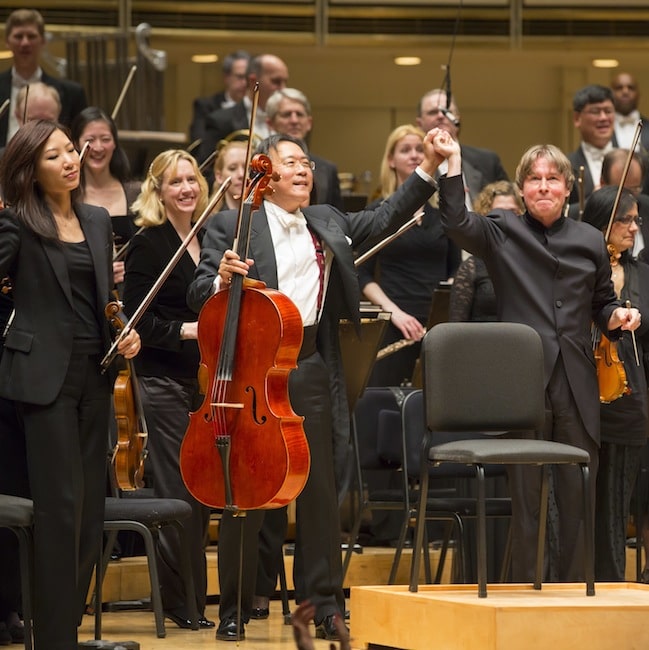
As job interviews go, this one is notably low-key.
The British conductor, who is leading the C’bouw on a US tour in place of the dismissed Daniele Gatti, gives an obligatory eve-of-tour interview to the parish paper.
But instead of puffing out his chest and doing the global maestro shtick, Harding lets the conversation centre on his litany of failures in America. “I haven’t found in the U.S. — I haven’t found my place, so to speak,” Mr. Harding said in a phone interview.
Zachary Woolf zones in quite rightly on his ‘notably graceful candor.’
If this is a job interview, it’s a first-time fail. And the pictures are likewise defeatist.
But Harding may be playing a different game. The Dutch don’t like tall poppies or swagger sticks. The humble tone may be the right one to impress this bunch of players. They are the voters in this election, not the writers and readers of the NY Times.
Was this what his PR advised?
If so, good call.
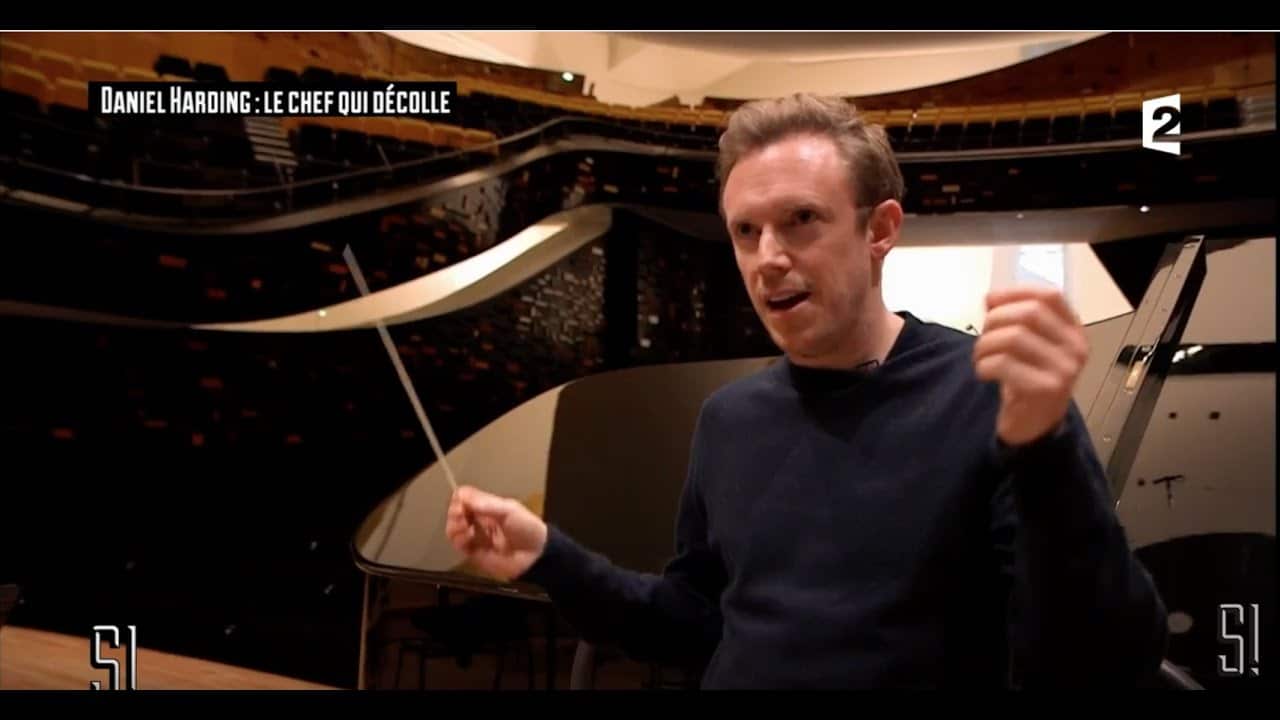
UPDATE: C’bouw in Chicago: first review
From the Helsingborg Concert Hall & Symphony Orchestra in Sweden:
Helsingborg Concert Hall & Symphony Orchestra aspires to be a cultural institution that promotes development in the music industry, seeking new ways forward. During the 2020/21 season, HSO will cease to use air travel to bring in musicians and conductors.
One of many myths in the industry is that classical orchestral music is dependent on the use of air travel to be able to offer high quality concerts.
“We are convinced that there are a sufficient number of competent musicians and artists within the limits for rail, road and sea travel. We are now inviting in soloists, conductors and agencies who are willing to support our belief that even classical orchestra music can be included in sustainable development,” says Fredrik Österling, director of Helsingborg Concert Hall.
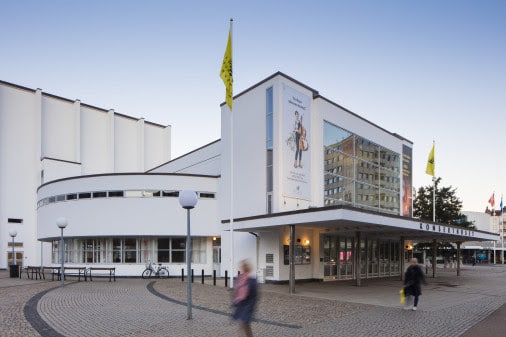
The Gewandhaus has renewed its contract with director Andreas Schulz until the summer of 2025, taking him up to one year short of retirement age.
Schulz, a pastor’s son, has been in charge at Leipzig since 1998.
He has worked with three music directors – Blomstedt, Chailly and Nelsons.











